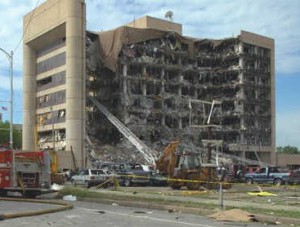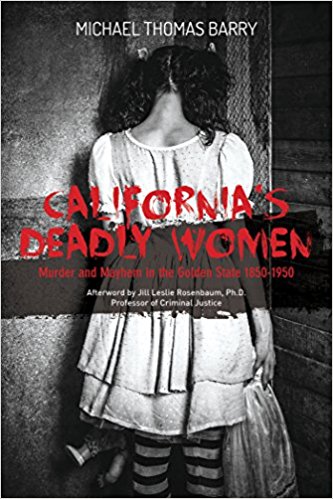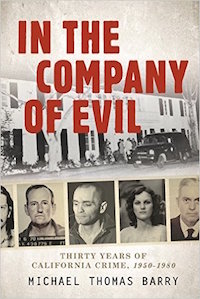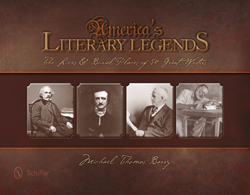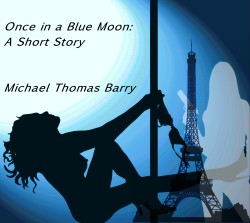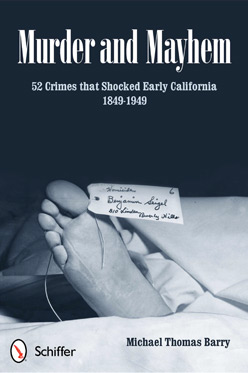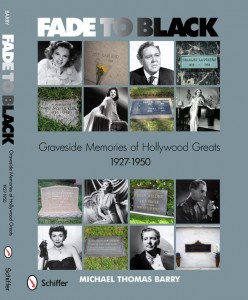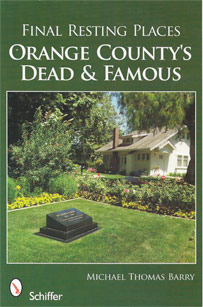04.19
On this date in 1995, a massive truck bomb explodes outside the Alfred P. Murrah Federal Building in Oklahoma City, Oklahoma. The blast collapsed the north face of the nine-story building, instantly killing more than 100 people and trapping dozens more in the rubble. Emergency crews raced to Oklahoma City from across the country, and when the rescue effort finally ended two weeks later the death toll stood at 168 people killed, including 19 young children who were in the building’s day-care center at the time of the blast.
On April 21, the massive manhunt for suspects in the worst terrorist attack ever committed on U.S. soil by an American resulted in the capture of Timothy McVeigh, a 27-year-old former U.S. Army soldier who matched an eyewitness description of a man seen at the scene of the crime. On the same day, Terry Nichols, an associate of McVeigh’s, surrendered at Herington, Kansas, after learning that the police were looking for him. Both men were found to be members of a radical right-wing survivalist group based in Michigan, and on August 8 John Fortier, who knew of McVeigh’s plan to bomb the federal building, agreed to testify against McVeigh and Nichols in exchange for a reduced sentence. Two days later, a grand jury indicted McVeigh and Nichols on murder and conspiracy charges.
While still in his teens, Timothy McVeigh acquired a penchant for guns and began honing survivalist skills he believed would be necessary in the event of a cold war show down with the Soviet Union. Lacking direction after high school, he enlisted in the U.S. Army and proved a disciplined and meticulous soldier. It was during this time that he befriended Terry Nichols, a fellow 13 years his senior, who shared his survivalist interests. In early 1991, McVeigh served in the Persian Gulf War and was decorated with several medals for a brief combat mission. Despite these honors, he was discharged from the U.S. Army at the end of the year, one of many casualties of the U.S. military downsizing that came after the collapse of the Soviet Union. Another result of the Cold War’s end was that McVeigh shifted his ideology from a hatred of foreign communist governments to a suspicion of the U.S. federal government, especially as its new elected leader, Democrat Bill Clinton, had successfully campaigned for the presidency on a platform of gun control.
The August 1992 shoot-out between federal agents and survivalist Randy Weaver at his cabin in Idaho, in which Weaver’s wife and son were killed, followed by the April 19, 1993, inferno near Waco, Texas, that killed some 80 Branch Davidians, deeply radicalized McVeigh, Nichols, and their associates. In early 1995, Nichols and McVeigh planned an attack on the federal building in Oklahoma City, which housed, among other federal agencies, the Bureau of Alcohol, Tobacco, and Firearms (ATF)–the agency that had launched the initial raid on the Branch Davidian compound in 1993.
On April 19, 1995, the two-year anniversary of the disastrous end to the Waco standoff, McVeigh parked a Ryder rental truck loaded with a diesel-fuel-fertilizer bomb outside the Alfred P. Murrah Federal Building in Oklahoma City and fled. Minutes later, the massive bomb exploded, killing 168 people. On June 2, 1997, McVeigh was convicted on 15 counts of murder and conspiracy, and on August 14, under the unanimous recommendation of the jury, was sentenced to die by lethal injection. Michael Fortier was sentenced to 12 years in prison and fined $200,000 for failing to warn authorities about McVeigh’s bombing plans. Terry Nichols was found guilty on one count of conspiracy and eight counts of involuntary manslaughter, and was sentenced to life in prison.
In December 2000, McVeigh asked a federal judge to stop all appeals of his convictions and to set a date for his execution. Federal Judge Richard Matsch granted the request. On June 11, 2001, McVeigh, 33, died of lethal injection at the U.S. penitentiary in Terre Haute, Indiana. He was the first federal prisoner to be put to death since 1963.
The Central Park Jogger case – 1989
On this day in 1989, a 28-year-old female investment banker is severely beaten and sexually assaulted while jogging in New York City’s Central Park. Five teenagers from Harlem were convicted of the crime, which shocked New Yorkers for its randomness and viciousness and became emblematic of the perceived lawlessness of the city at the time. The case was also racially divisive, as the teens were black and Hispanic and the victim was white.
The “Central Park Jogger,” as she became known in the media, was discovered by passerby in a muddy ravine, her skull smashed and near death, hours after she went for a jog in the park around 9 p.m. After being rescued, she spent nearly two weeks in a coma, but surprised doctors by eventually recovering from most of her injuries. However, she remembered nothing about the near-fatal attack or the events leading up to it. Police quickly charged five male teens with the crime; four made videotaped confessions, while implicating a fifth suspect. The teens were part of a larger group of youths who had been roaming Central Park on the night of April 19, robbing and beating people. The public became familiar with a new term, “wilding,” to describe the gang’s random, violent rampage.
The teens charged in the Central Park jogger attack soon claimed their confessions had been coerced by the police; however, the five were convicted in two separate trials in 1990, and received prison sentences ranging from five to 15 years. Then, in 2002, a convicted murderer and serial rapist, already behind bars, came forward to confess he had attacked the Central Park jogger when he was 17 and had acted alone. DNA evidence later confirmed his rape claim. In December 2002, the convictions of the five men originally charged in the case were overturned. The men later filed multi-million dollar lawsuits against New York City, which have not been settled. In 2003, the Central Park jogger, Trisha Meili, publicly revealed her identity by publishing a book about her ordeal. In the years after the attack, she became a motivational speaker and advocate for victims of sexual assault and brain injury.

